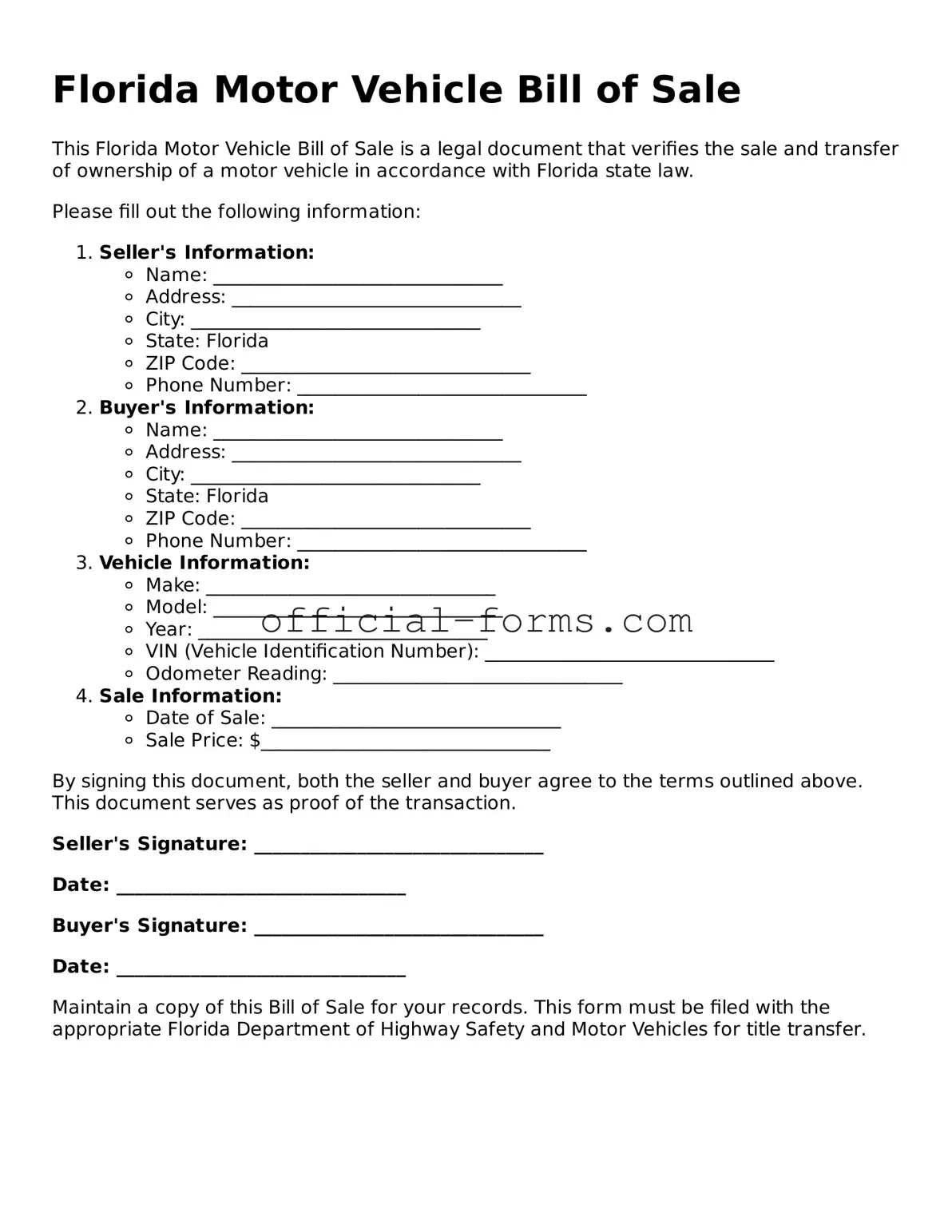When filling out the Florida Motor Vehicle Bill of Sale form, many individuals overlook critical details that can lead to complications later on. One common mistake is failing to provide accurate vehicle identification information. The Vehicle Identification Number (VIN) is essential for identifying the specific car being sold. Omitting or miswriting this number can create confusion and may lead to legal disputes.
Another frequent error involves the seller's information. Sellers sometimes neglect to include their full name and address. This omission can cause issues if the buyer needs to contact the seller after the sale or if there are any disputes regarding the transaction. Always ensure that the seller's details are complete and clearly legible.
Buyers, too, can make mistakes. They may forget to include their information or provide an incorrect address. This is particularly important for future registration and title transfer. If the buyer's details are inaccurate, it could delay the process of transferring ownership, leading to potential fines or penalties.
Additionally, many people fail to include the purchase price. This figure is not just a formality; it serves as a record of the transaction for both parties. Without it, there could be misunderstandings about the terms of the sale. It’s crucial to clearly state the agreed-upon amount.
Another common pitfall is neglecting to sign the document. Both the buyer and seller must sign the Bill of Sale for it to be valid. If either party forgets to do so, the form may not hold up in legal situations, which could create significant issues down the line.
Some individuals also overlook the date of the sale. This detail may seem minor, but it is vital for establishing when the transaction took place. Without a date, it becomes challenging to prove the timeline of ownership, which can complicate future legal matters.
Moreover, using an outdated version of the Bill of Sale form can lead to problems. Florida may update its forms, and using an old version might not comply with current laws. Always ensure you are using the most recent form to avoid unnecessary complications.
Another mistake is not keeping a copy of the completed Bill of Sale. Both parties should retain a copy for their records. This document serves as proof of the transaction and can be invaluable in case of disputes or questions about the sale in the future.
Some sellers mistakenly believe that a Bill of Sale is not necessary if they are transferring the title. However, having a Bill of Sale provides an additional layer of protection for both parties. It serves as a formal record of the transaction and can help clarify any misunderstandings that may arise later.
Finally, failing to verify the buyer's identity can lead to significant issues. Sellers should always check that the buyer's identification matches the information on the Bill of Sale. This step helps prevent fraud and ensures that the transaction is legitimate.

